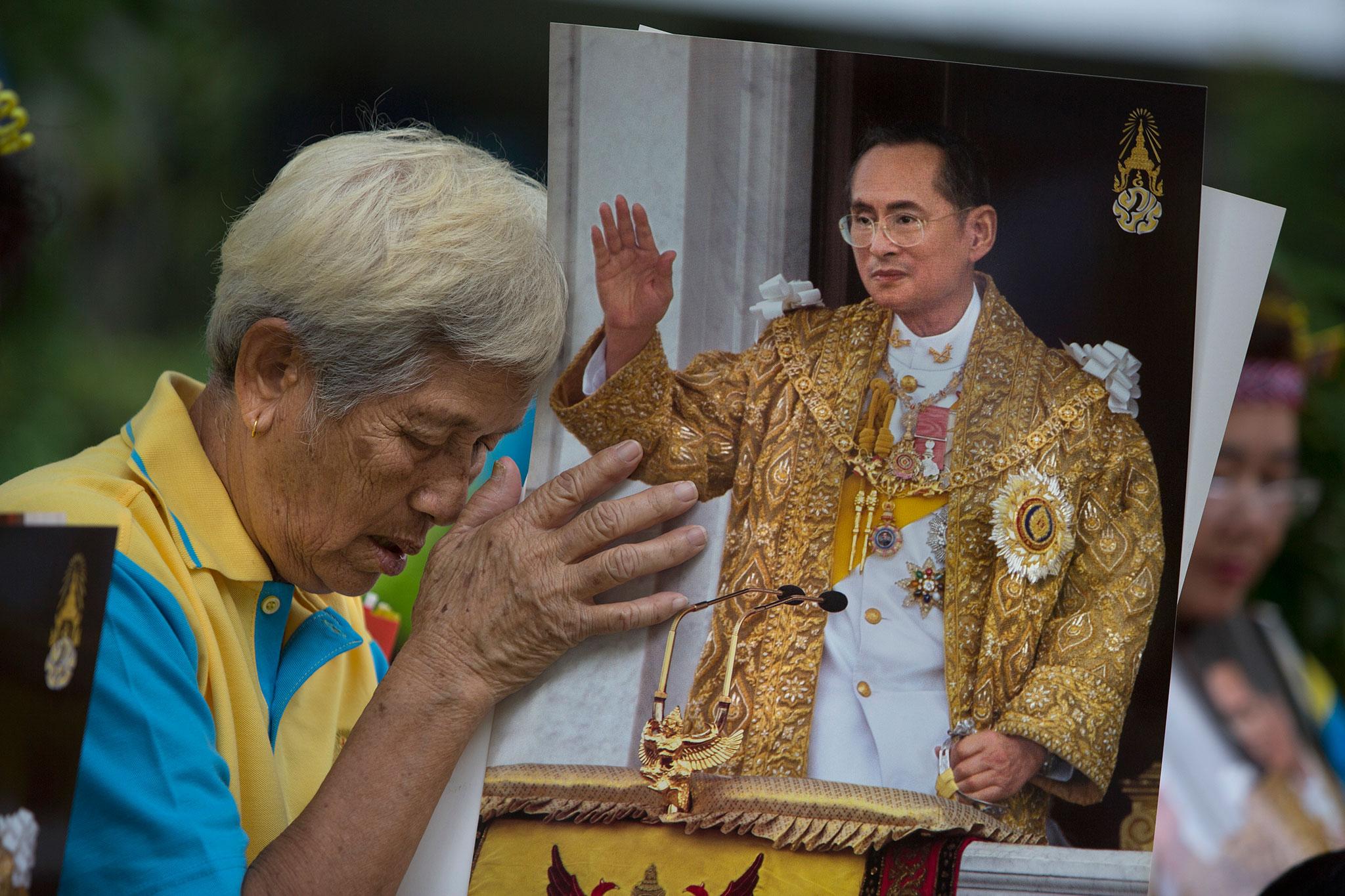King Bhumibol Adulyadej: Concerns over Thailand monarch's health as nation celebrates his 70 year reign
The monarch is regarded as integral to Thailand's identity and as a father-figure to the nation

Your support helps us to tell the story
From reproductive rights to climate change to Big Tech, The Independent is on the ground when the story is developing. Whether it's investigating the financials of Elon Musk's pro-Trump PAC or producing our latest documentary, 'The A Word', which shines a light on the American women fighting for reproductive rights, we know how important it is to parse out the facts from the messaging.
At such a critical moment in US history, we need reporters on the ground. Your donation allows us to keep sending journalists to speak to both sides of the story.
The Independent is trusted by Americans across the entire political spectrum. And unlike many other quality news outlets, we choose not to lock Americans out of our reporting and analysis with paywalls. We believe quality journalism should be available to everyone, paid for by those who can afford it.
Your support makes all the difference.The bespectacled image of King Bhumibol Adulyadej dominates public space in Thailand, from billboards on high-rises to portraits that flank leafy boulevards.
After seven decades on the throne, King Bhumibol is seen by many Thais as a pillar of stability, and accorded semi-divine status. But the kingdom marks his platinum jubilee on Thursday amid anxiety over his health and at a critical political juncture.
Celebrations will include a morning religious ceremony presided over by 770 Buddhist monks, a figure seen as auspicious.
The festivities will serve as a reminder to Thais of their relationship to a king who is regarded as integral to Thailand's identity and a father-figure to the nation.
It may also jangle nerves about the succession, as most Thais have known no other monarch. The king received heart treatment on Tuesday and has been in hospital for more than a year.
Crown Prince Vajiralongkorn, the king's 63-year-old son, is the heir apparent. He has not achieved the same level of devotion that his father enjoys.
“The relationship between Thais and the king is deep, more than one can actually begin to explain,” Colonel Winthai Suvaree, a spokesman for the royalist junta, told Reuters.
“He is a father to the land.”
The monarchy has not always been held so highly in Thailand. In 1946, at the age of 18, King Bhumibol inherited a throne that had barely survived the upheaval of the end of absolute monarchy in 1932.
That marked what an official biography of the king described as a nadir for the monarchy.
Over the following decades, the king earned the adoration of millions through work in public health and rural development, and with the help of a formidable public relations machine that returned the monarchy to prominence in a country where politics, was, and still is, largely dominated by the military.
The military has staged 19 coups or attempted coups since the end of absolute monarchy, often evoking its loyalty to the crown and defence of the monarchy in explaining its actions.
Crowds gather whenever the king's convoy travels, and many people sport the colours of royal family members on their birthdays.
For some, the reverence reflects conformity in a country known for adherence to age old customs and its love of uniforms.
Others point to stringent royal insult laws that prevent criticism of the king, and which have been enforced with record jail terms under a junta that seized power in 2014.
For most, there is genuine affection.
“He travelled up and down the country and met the people and he heard and fixed our problems and that is why we love him,” said Yaovapha Thaitae, a noodle vendor working near the Bangkok hospital where the king is being treated.
The king's jubilee comes amid a junta crackdown on dissent ahead of an August referendum on a constitution that critics say would extend the military's influence at the expense of populist political forces that emerged to challenge the establishment as Thailand's economy boomed in recent decades.
If voters reject the draft charter, a general election slated for 2017 could be delayed, likely prolonging tension between the military-dominated establishment and its rivals seeking a quick return to electoral politics.
Educational reforms under the junta have emphasised loyalty and love of the monarchy. King Bhumibol's image is at the centre of every classroom in schools where education is largely by rote learning.
The national anthem is played in public places every morning and evening and people are expected to stand at attention. Old footage of the king's visits to rural communities is shown when his anthem is played in cinemas before every movie.
Many national holidays revolve around the royals. The king's birthday is Father's Day and Queen Sirikit's is Mother's Day.
“Holidays throughout the year praise Thailand's king,” said Paul Chambers, director of research at the Institute of Southeast Asian Affairs in the city of Chiang Mai.
“Education and state emblems, virtues, slogans, also place the king at the centre of the nation.”
Such is the cult of personality surrounding the king that some analysts have made comparisons with North Korea.
“The Thai king's image is ubiquitous,” said Chambers. “That is also true of leaders in Brunei and North Korea. Perhaps Thailand differs from those cases because the cult of personality leader in those countries rules directly.”
Reuters
Join our commenting forum
Join thought-provoking conversations, follow other Independent readers and see their replies
Comments